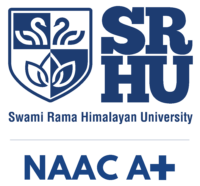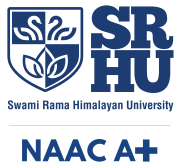Policy for Eco-Friendly Transportation
November 7, 2025 2025-11-15 6:36Policy for Eco-Friendly Transportation
Policy for Eco-Friendly Transportation
| Approved | Board of Management on 12th January 2019 |
| Notification | Notified by Registrar vide notification No. SRHU/Reg/OO/2019-04 (i) dated 15th January 2019 |
| Reviewed / Revised | Board of Management on 29th March 2022 |
| Notification | Notified by Registrar vide notification No. SRHU/Reg/OO/2022-58 (i) dated 5th April 2022 |
| Next Review | 2025–26 |
- Short Title & Commencement
- This Policy shall be called the “Policy for Eco-Friendly Transportation” of Swami Rama Himalayan University.
- This Policy shall come into force from the date of approval by the Board of Management of the University.
- PurposeThe purpose of this policy is to provide safe, reliable, and affordable transportation facilities for SRHU staff, faculty, students, and their dependents, while reducing the environmental impact of commuting through the promotion of eco-friendly options. It also seeks to foster health, safety, and sustainability in all aspects of campus mobility. This policy also aligns with global sustainability commitments, particularly the UN Sustainable Development Goals 11 (Sustainable Cities and Communities), and SDG 13 (Climate Action).
- Scope of the PolicyThis policy applies to:
- All staff and faculty members (regular full-time and part-time).
- Students and dependent children of employees (as per HR rules).
- University-owned vehicles, shuttle services, and eco-friendly commuting initiatives (cycling, walking, EVs, shared/public transport).
- Objectives
- To provide convenient and affordable commuting facilities for employees and their dependents.
- To reduce the financial burden of transportation on employees through subsidized facilities.
- To minimize greenhouse gas emissions by promoting low-carbon transportation.
- To encourage walking, cycling, carpooling, and the use of electric and shared vehicles.
- To build awareness about sustainable mobility practices.
- Policy Measures
- University Bus and Shuttle Services
- SRHU will operate bus services on designated routes for staff, faculty, and their dependents at subsidized rates.
- Electric vehicles/ Shuttle buses will be introduced for intra-campus and short-distance travel.
- Routes and schedules will be decided in consultation with employees and students.
- Subsidized Facility
- Transportation will be provided at subsidized rates, determined by the administration based on actual operating costs.
- Payment options may include monthly or semester-based contributions.
- Registration and Use
- Eligible employees, dependents, and students must register for the bus facility.
- Cancellation requires one month’s notice; refunds will follow the university’s refund policy.
- Misuse of the facility may result in disciplinary action or cancellation of privileges.
- Promotion of Eco-Friendly Modes
- Cycling & Walking: Dedicated lanes, secure bicycle parking, and a bike-sharing program will be developed.
- Electric Vehicles (EVs): Charging stations will be installed on campus; EVs will be prioritized for campus fleet use.
- Carpooling: The University will encourage carpooling among staff and students through a carpool matching initiative.
- Infrastructure Design
- Priority parking will be given to EVs, bicycles, and shared vehicles.
- Campus pathways and transport facilities will be designed to ensure universal accessibility, including safe pedestrian access for differently-abled persons. Safety measures such as speed restrictions, traffic calming, and cycling safety (helmet use, reflective gear) will be emphasized.
- New infrastructure will integrate sustainable transport features such as EV charging points.
- Awareness and Training
- Awareness campaigns will be organized to highlight the environmental benefits of eco-friendly commuting.
- Staff and drivers will be trained in eco-driving practices to reduce emissions.
- Research and pilot projects on innovative green mobility solutions (such as solar charging systems, AI-based route optimization, and shared e-mobility services) shall be encouraged in collaboration with academic departments.
- University Bus and Shuttle Services
- Responsibilities
- University Leadership
- Allocate resources and oversee policy implementation.
- Monitor progress and ensure sustainability targets are met.
- Motor Transport Office
- Manage bus and shuttle operations, EV fleet adoption, and cycling infrastructure.
- Ensure transportation systems comply with safety and sustainability standards.
- Regularly report on transport sustainability indicators, including EV adoption, cycling usage, and fuel efficiency trends.
- Academic & Administrative Departments
- Encourage faculty, staff, and students to adopt eco-friendly commuting practices.
- Support carpooling, cycling, and walking initiatives.
- Faculty, Staff, and Students
- Use university transport responsibly and promote sustainable travel choices.
- Report issues or misuse of facilities promptly.
- Actively participate in awareness campaigns.
- University Leadership
- Monitoring and Review
- The University will review bus and shuttle operations annually to ensure efficiency, affordability, and alignment with sustainability objectives.
- Adoption of electric vehicles (EVs), cycling, walking, and shared/public transport will be monitored periodically.
- Monitoring will include the use of digital dashboards, transport records, and feedback mechanisms to track progress.
- Key performance indicators (KPIs) will include:
- Reduction in fuel consumption and emissions.
- Percentage of EV adoption in the campus fleet.
- Modal share of cycling, walking, and public/shared transport.
- Utilization of university shuttle/bus services.
- Improvement in accessibility and safety for pedestrians and cyclists.
- An annual sustainability report will include a dedicated section on eco-friendly transportation, presenting data, progress, and recommendations for further improvement.
- This policy will be updated regularly based on technological advancements, user feedback, and evolving institutional and global sustainability goals.

